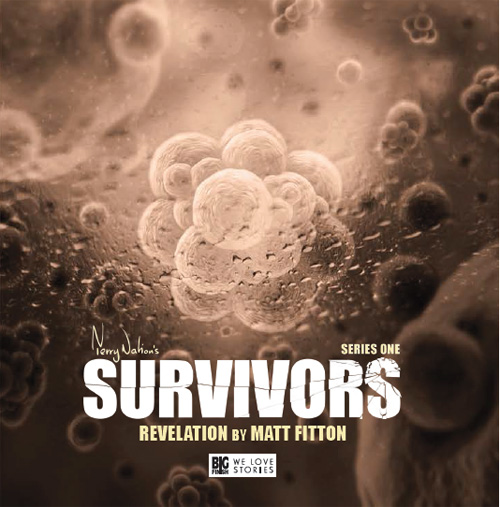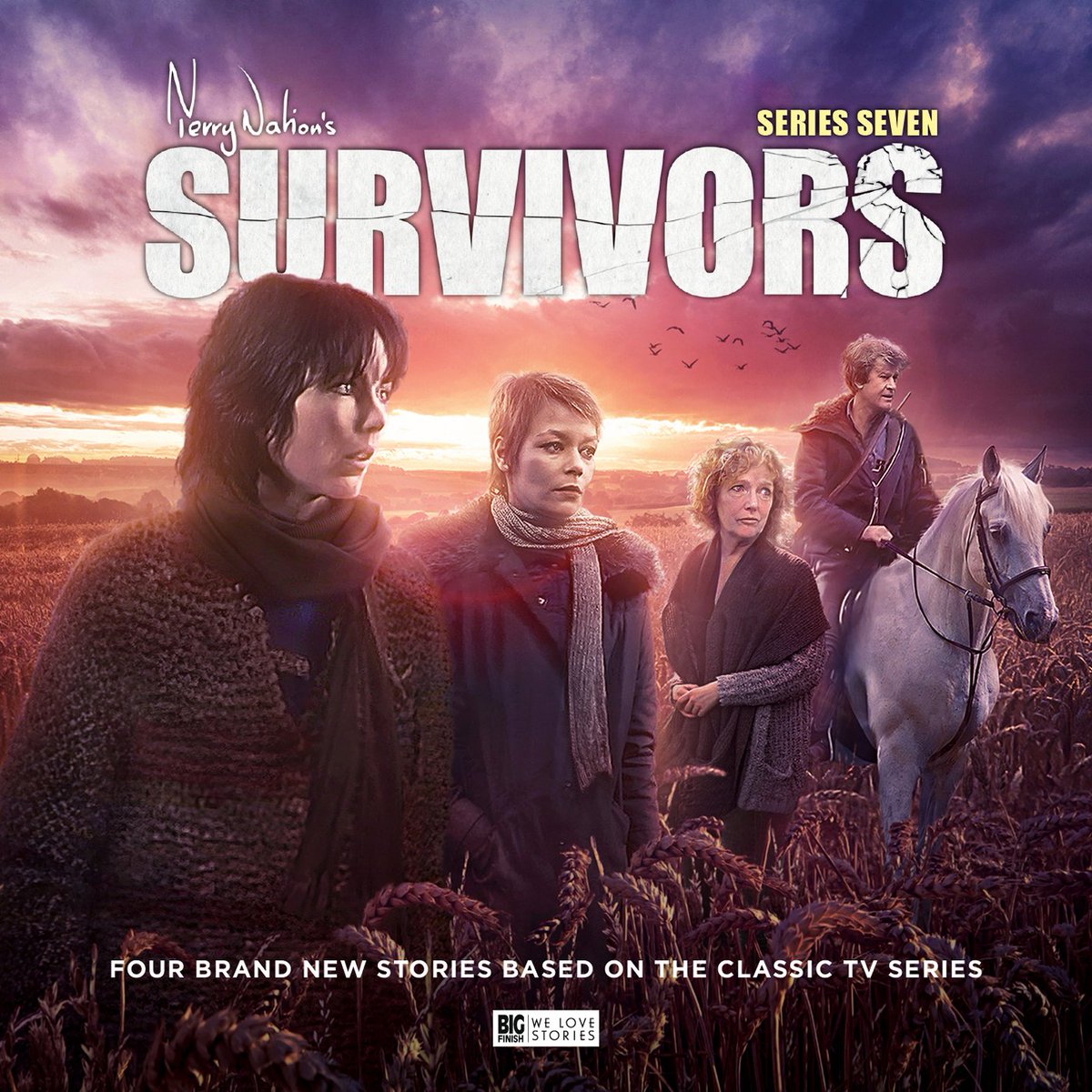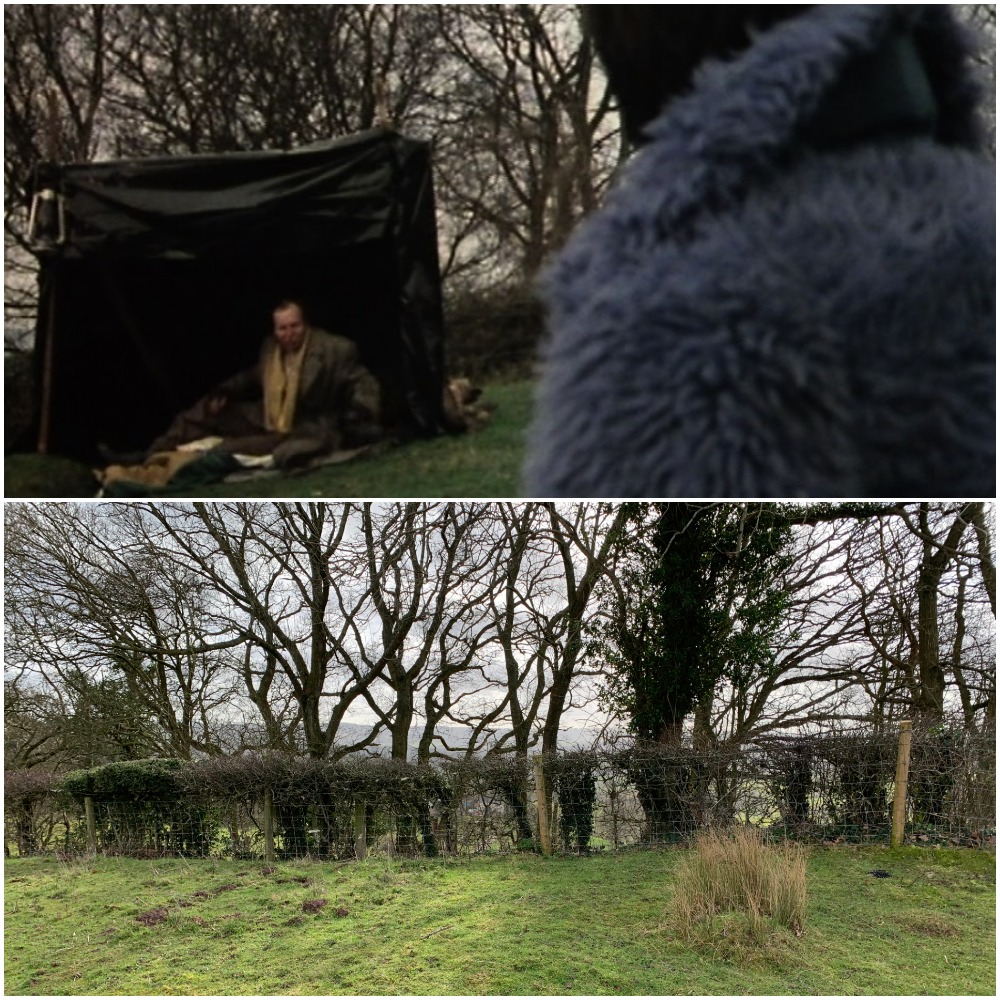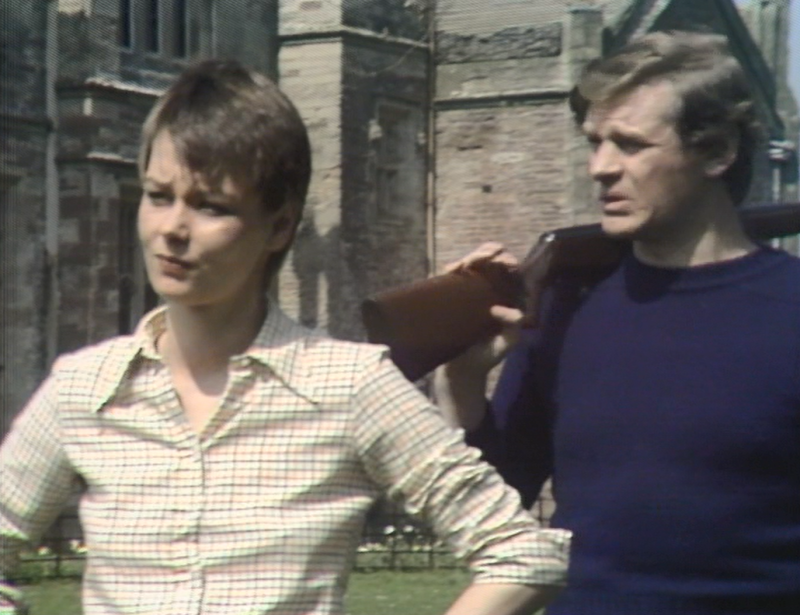
THE SEVENTH EPISODE of series one - Starvation - has attracted a poor critical reputation over the last few years. Several commentaries have identified it as a mundane, routine and lacklustre story, seeing it as evidence of a mid-series dramatic lull.
In a review in Dreamwatch, marking the release of the fourth Survivors video back in September 1993, Anthony Brown criticised the episode as 'uninvolving, with little semblance of structure and pace. It serves as an introduction… and as such is more of a necessity than a pleasure.' In Kevin Marshall's entertaining The Making of Terry Nation's Survivors, actress Julie Neubert (Wendy) judged Starvation as pedestrian and uneventful. 'By today's standards', she writes, 'the episode is slow, undramatic and, like much of the series, psychologically shallow.' In the last issue of Over the Hills Ian McCulloch (Greg), one of the series' three lead actors, damned Starvation as 'feeble... very slow - and stretched out.'
This combined critical battering is, in my opinion, unfair and unwarranted. I want to put the case for the defence of Starvation as an engaging and thoughtful story, one with many important strengths, and with underlying power and appeal. A swift dismissal of Starvation as a 'treading water' episode overlooks important elements in its dramatic texture, and ignores its narrative significance in setting up payoffs that are delivered later in the series. Starvation opens up a new and strongly communal setting in which the real shared survival story of series one can properly unfold.
Disreputable figure
Starvation begins with the separate story strands of the different characters who become tied together with the establishment of the manor house settlement at the end of the episode. At her dead son's weekend country cottage, the elderly Emma Cohen and her young companion Wendy have run perilously short of food. Loading up the school minibus nearby, Abby, Greg and Jenny reveal to the children their decision to end the search for Peter and to begin instead the hunt for a suitable new home. On a last scavenger hunt Wendy chances across the disreputable figure of Tom Price, who is eager to trade stock from his food supply in the hope of sexual services in return. The minibus meanwhile has been blockaded by a pack of wild dogs, who flee just as Greg prepares to force the van through them.
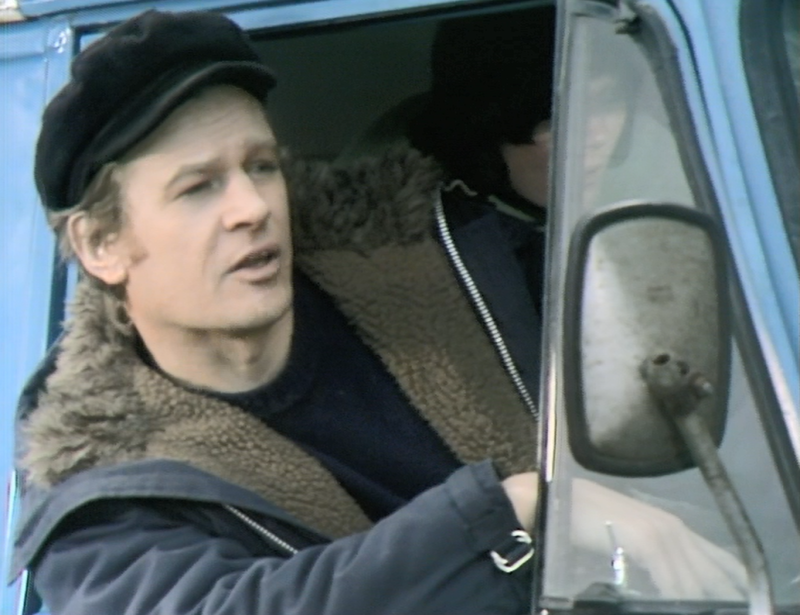
Back at the cottage, the dogs attack their new prey - setting about the terrified and defenceless Emma, just as the school minibus races by. As Jenny and Greg draw off the hounds, Abby rushes to her aid, to find her shaken but unharmed. Losing their way, Jenny and Greg decide to investigate a nearby manor house they spot on their map, only to be pinned down again by the dogs on their arrival at the gates. Fearful and more than a little desperate, Wendy steals two small half-cooked fish from Tom's makeshift grill and flees, pursued by an enraged Price.
In the dark
Arriving at the cottage, Price takes Abby's weapon, holding her at gunpoint until he recognises her. His angry threats subside once Abby appears willing to offer herself in payment for foodstuffs. Price is suspicious, but is willing to risk it, only to be trapped in his own goods lorry by Abby and Wendy. Still surrounded by the dog pack, Greg and the others park up to wait things out, sustained by the last of the cocoa. Waking later in the dark, and finding the animals nowhere in sight, Greg opens the doors of the manor house and the party hurries inside.
Losing their way, Jenny and Greg decide to investigate a nearby manor house they spot on their map
Rich Cross
The next morning Jenny and Greg explore, their new role as surrogate parents confirmed as the children call for them on waking. As Greg scouts out the grounds and hunts, Jenny is alerted by the piercing screams of Lizzie and rushes to her side to be confronted by the other resident of the sprawling house - the bemused, but gentle, Barney. The adults quickly realise that Barney poses no threat, and is in fact in urgent need of care. Abby and her group arrive in Price's lorry, drawn to the house by the smoke from the fire Jenny lights to boil water to tend Barney's bite wound.
As the others admire their new lodgings, Greg disarms and then releases Price, and the group enter the main house. Emma prepares a simple 'feast' for the new community. Its members discuss the potential of their new estate, as Greg strums his guitar. Early next morning as the group excitedly explore, it is apparent that the decision has already been taken without the need for a show of hands. Wendy waves from the rooftop, and the children delight in the return of their pet dog Ben, as the house and grounds are bathed in warm spring sunshine. 'Abby', says Greg, 'I think we're home.'
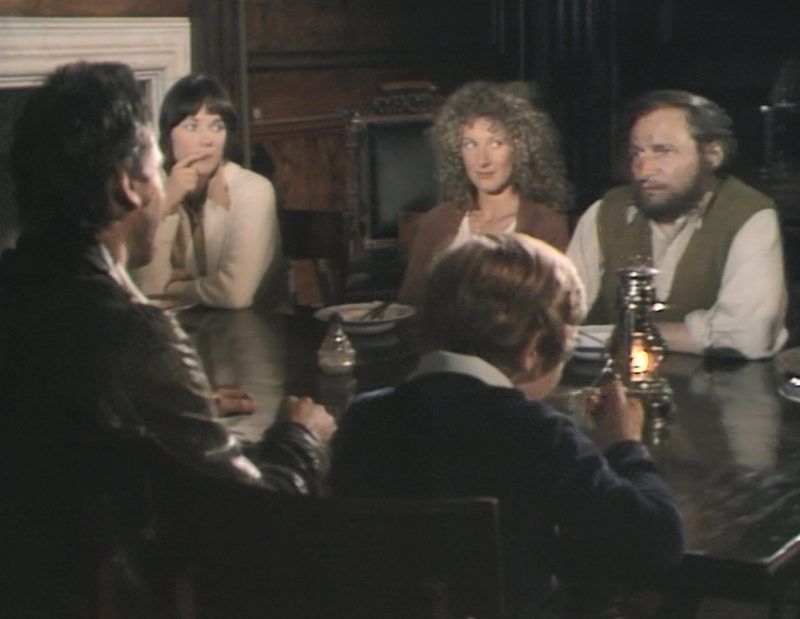
In most respects, the first series of Survivors might be divided into four reasonably distinct 'acts'. The opening Act (episodes 1-2) concerns itself with the onset of the Death, chronicling its relentless spread and the apocalyptic devastation that it wreaks. Act Two (episodes 3-6) brings together the three core series one characters, and - using the device of Abby's search for her missing son- introduces them (and us) to the terrible realities of the post-plague social environment. The Third Act (episodes 7-12) begins with the gathering of the disparate new community at the manor - a decisive turning point in the first series story arc - and develops through the group's struggles to establish a viable new home.
Episode 13, A Beginning, is the self-contained final Act, offering Abby the hope of reunion with her son, and the community the hope of strengthened security in a new co-operative defence alliance with other settlements. Starvation is the transition episode which moves the series from the Second to the Third Act.
Shift in mood
In it the principal characters make a commitment not only to stay together, but to put down roots and begin the process of 'surviving' - rather than simply 'living through' - The Death. It is the first episode of the series to contain any semblance of hope, or reveal a genuine belief in the possibility that a future worth living might emerge from the ruins of the old social order. Around the table at the impromptu feast, a collective shift of mood amongst our new arrivals is apparent - the smiles and chatter convey a sense that, in committing to each other, our survivors for the first time believe in the possibility of a better tomorrow. After their recent experiences, it seems self-evident that this type of communal settlement is the least worst alternative on offer, even for the most sceptical amongst them.
The hunger and want described by the episode title refers to more than simply the need for food that drives our characters to set up a commune and plant crops. It also identifies 'starvation' in a more abstract sense: in the human need to find connection and common purpose with others, and to overcome the poverty of solitude and detachment.
This is about individuals putting an end to their social and emotional starvation, as well as about them finding ways to fill their bellies. Prior to this our characters have been looking back with a bewildering sense of loss and disbelief. It's been about them trying to come to terms with all that they've just been through. The agreement to settle together at the Grange suggests that for survivors like these life may move on beyond mourning for the past. It is this project, this determination, that sets this community apart — and others that we see later in series two and three — from the petty-capitalist traders like Huxley in The Future Hour; political bully-boys like Wormley from Genesis; and drifters and loners like Alastair in Face of the Tiger and Fenton in Mad Dog. Interestingly, it also sets the project apart from the new generation 'breeding colony' already established by Charles Vaughan in Corn Dolly.
Ian McCulloch's frustration with the ludicrous pack of 'wild dogs' that the producers expected him to work with is completely justified
Rich Cross
In Starvation are some of the few moments of quietly effective comedy in the whole series (delivered with predictable style by the ever-reliable Talfryn Thomas), as Tom begins to realise how easy it will be for him to impress the doting Barney. Still smarting from his humiliation at the hands of Abby, Wendy and Greg, Tom delights in finding himself a sidekick more than willing to be bossed around. It won't be until the brutal horrors of Law and Order that the terrible irony will be revealed of Price's insistence that: 'you stick with me Barney boy. You won't go far wrong.'
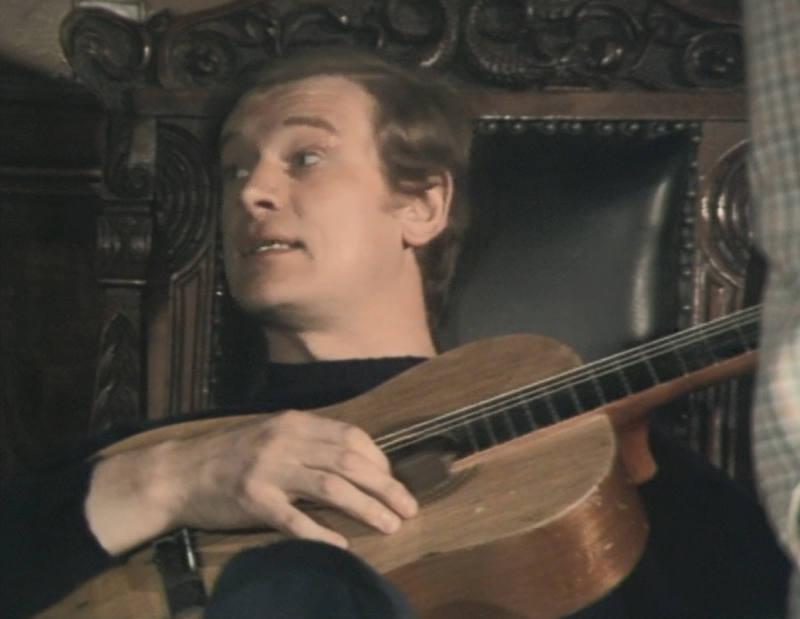
Of course, not everything works as well as that chilling set up. Ian McCulloch's frustration with the ludicrous pack of 'wild dogs' that the producers expected him to work with is completely justified. Director Pennant Roberts should have sent them straight back to the BBC kennels on sight - although the usual tight production schedule might well have prevented him doing just that.
These mutts are supposed to be a vicious pack of scrapping and predatory mongrels, half-crazed by hunger and driven wild by the scent of fresh meat. They look like the well-fed and neatly-groomed cast of a Blue Peter pet care item - their eyes fixed obediently on the animal handler just out of shot. As McCulloch complains in Over the Hills 11, the 'mad dog' sequences are simply not of acceptable quality for a TV drama.
Pampered pooches
Because the dog pack is the plot device that separates Abby from Greg and Jenny, and leads to the latter's discovery of the manor house, the lack of threat from these pampered pooches badly undermines the credibility of the storyline. There are a couple of things to be said in the series' defence here though. Firstly, all the cast do their valiant best to make the dog threat as real as they're able - McCulloch's embarrassment for one is not apparent on screen. Secondly, and perhaps more importantly, the series' producers learnt their lesson. By the time of Manhunt, the opener of series three, the mad dogs on show look the part.
Starvation adds in several new characters and marks the welcome return of one other. Two new characters, together with the returning Price, form a tragic triangle which ends in the death of all three in the murder and trial of Law and Order and its aftermath. Emma Cohen is introduced to take on the role of housekeeper for the new community.
Her character helps to give the commune a more interesting generational dynamic than it would otherwise have had. It also seems likely (given the very traditional gender politics of the series) that the writers intended that the character of Emma would free Jenny and Abby from many routine domestic and maternal responsibilities they might otherwise have been lumbered with at the Grange, opening up the dramatic possibilities for the female leads. Emma's status as the effective grandmother of the settlement also allows the new community to take on the trappings of a traditional extended 'family'.
Wendy, brought in as a secondary young female character, helps to fill out the founding group at the Grange, but her primary role is to die a bloody death at the hands of Tom Price. Price, last seen in Gone Away throwing in his opportunistic lot with the Wormley militia men, is now back - as a deserter, and a pilferer from the would-be 'government' armoury. The 'murder trio' is completed by the character of Barney, the warmhearted simpleton holed up injured at the Grange.
Central dilemma
His role is never properly developed, being introduced as the necessary plot mechanism that makes the central dilemmas of Law and Order work - Barney is unable to articulate his own defence, remains unaware of the need to implicate Price, and is wholly ignorant of the deadly consequences of his silence. If Barney could have acted as his own advocate, Price would have been fingered straight away and the drama would have evaporated. All of which means that Barney is writer Jack Ronder's 'means to an end'.
It is interesting and legitimate for Survivors to demonstrate that all kinds of vulnerable, less-than-fully competent, ill and damaged people will have been selected by the genetic lottery of the virus, but there are others ways of engaging with this fact. John Line's quite brilliant performance as the convicted child-murderer in Face of the Tiger is a far richer, and more articulate investigation of the problems of mental health care, and mental disability, in the post-plague world.
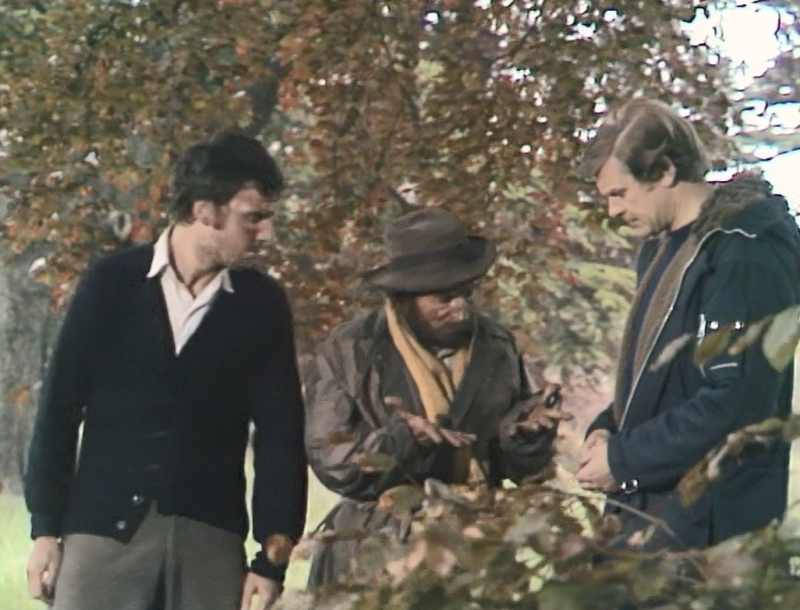
The upbeat conclusion to Starvation is a conscious break with the tone of all that has gone before. But it is only later that the real dramatic power of the moment is revealed. For all but three of the Grange's new owners, the optimism of Starvation will prove entirely illusory. We have to remember not only all the trials and tribulations that await this new band of settlers, but also the short life expectancy of so many of the characters that assemble at the Grange to found a home and find a way forward.
Later Abby will find her son Peter, but will be reported 'missing presumed dead' in the wastelands of north London. Struggling to forge a new network of thriving communities, Greg will fall victim to smallpox, (almost certainly) dying remote from his family and friends. Wendy will be murdered, Barney executed, and a devastated Price shot dead by Huxley's henchmen. Emma will be killed in the house fire that also takes the lives of later arrivals Vic, Charmian and Donny. Arthur will later succumb to 'flu, Paul to a deadly city-bred virus.
Set out like this, it's a grim and relentless catalogue of death and despair! Of the founding Grange group only Jenny and the children are definitely alive by the time of Power, the series' concluding episode, set less than three years after the Death. John has been reunited with his mother. Jenny's son Paul has pulled through, but they have both lost Greg.
Starvation is a conscious break with the tone of all that has gone before
Rich Cross
Implicit in the series' finale is the idea that a coalition of communities has slowly begun to emerge from the ruins of the old society, alongside a nascent 'government', even if many of the original survivors have not lived to see this new beginning. That sense of optimism has to be counted against the heavy death toll of the characters that we have known.
It is Starvation that moves the story forward beyond the immediate terror and dislocation of The Death. Its early-Spring setting is both metaphorical and real. Near the start of the episode Emma asks plaintively: 'So much life, everything living - why can't we?' Starvation sets out the new environment in which our survivors struggle to answer that question. The move is a vital component of the first series' arc, but it is an entertaining one at the same time.
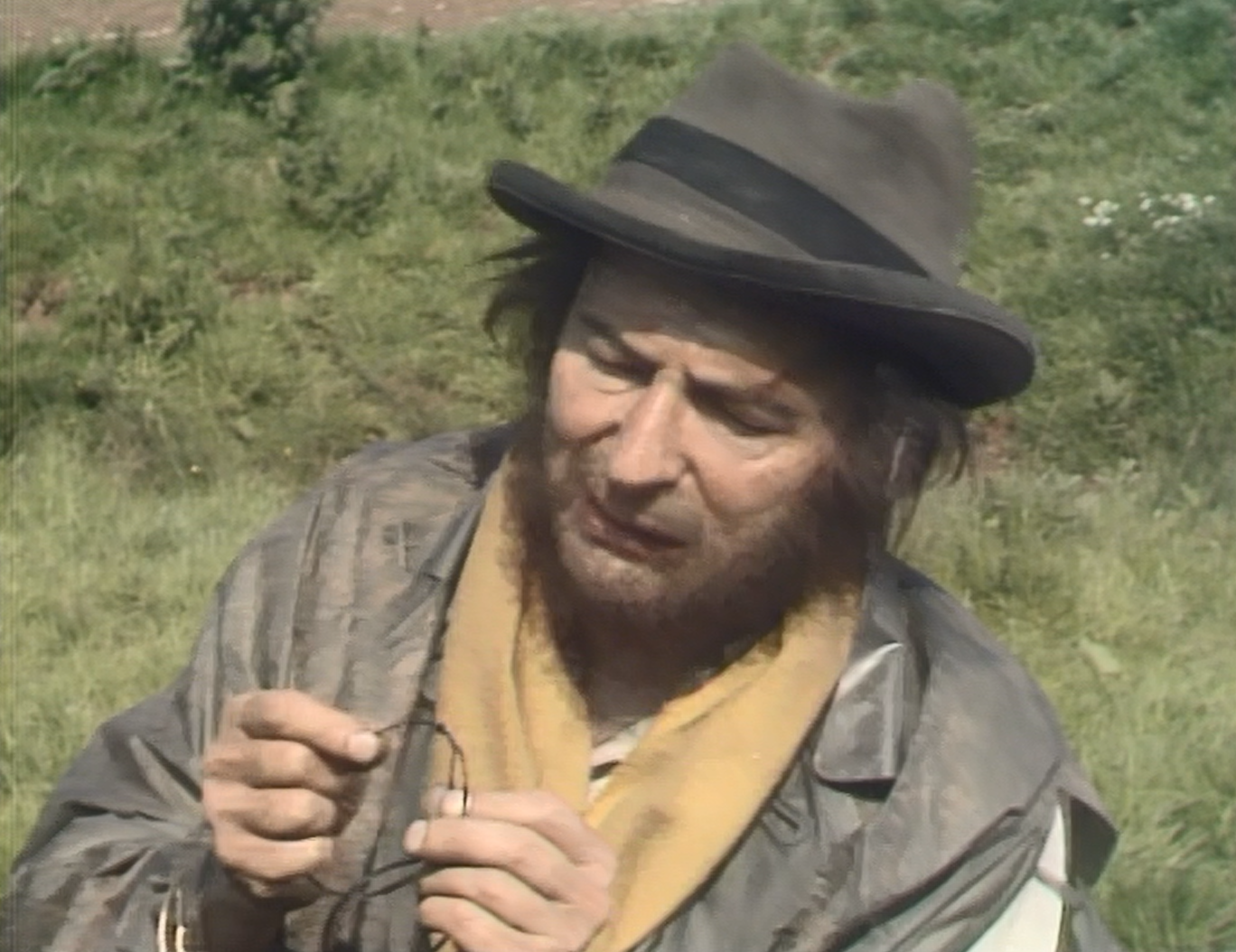
Alongside its obvious drama, the episode has more subtle strengths and understated deeper meanings. The manor house and its resources, and the connections between characters, are revealed gradually. This might appear over-leisurely to some viewers. But it might equally suggest a confidence in the material, and a recognition of the power of its core ideas, on the part of the producers. Then again, perhaps I'm the only fan who thinks the episode warrants and rewards repeated viewing!
Pace and tone
Julie Neubert's criticism of the thin psychology of the piece might be valid when directed against the cipher of Barney. But it seems an unreasonable swipe at a story with such a rich undercurrent of concern with human needs beyond the narrowly material.
Survivors is such a compelling series partly because it combined action and adventure pieces with more thoughtful and reflective storylines. With perhaps the sole exception of a stodgy trio of stories at the tail-end of series three (The Peacemaker, Sparks and The Enemy) which are all designed to transport our heroes to the hydroelectric plants of the Scottish highlands, Survivors rarely maintained a uniform pace and tone between episodes.
Not all of the 'quieter' stories work, but Starvation's inclusion on the list of 'weaker' episodes comes - I think - from a misreading of writer Jack Ronder's key objectives. Whatever its faults, Starvation should not be criticised for 'failing' to be the frenzied action piece that Ronder never intended it to be. It provides dramatic sustenance of a different kind. Immediately following Starvation comes Spoil of War - an action drama dominated by an armed stand-off at a quarry, in which character issues are secondary. Such was the welcome variety of the series.
Rich Cross
Cite this web page
Cross, R. (2021). 'In defence of "Starvation",' [online] Survivors: A World Away, 31 January. Available at: https://www.survivors-mad-dog.org.uk/a-world-away/Archive_Rev_ST.php. Accessed on: 03 March 2026.
Current style: Harvard
TAGS

